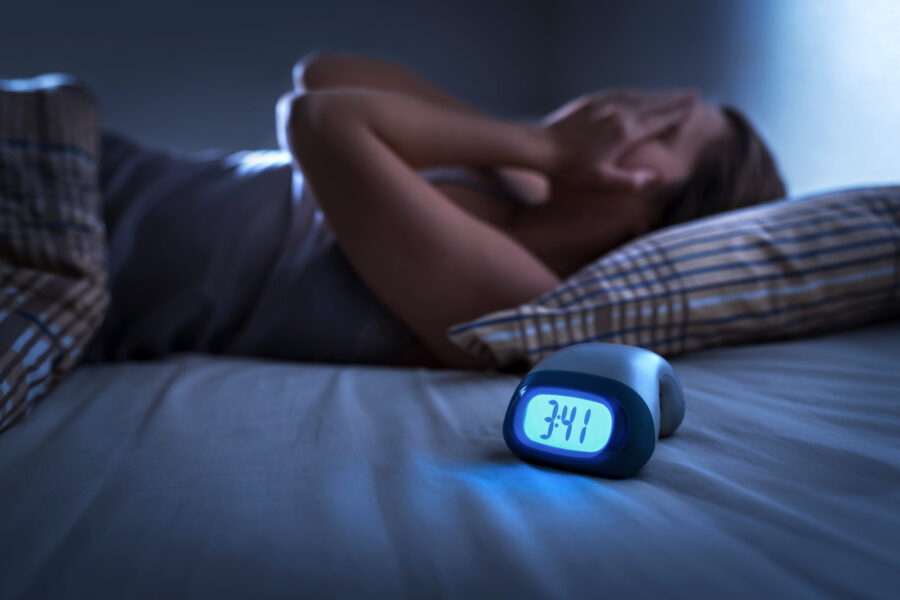Stick Your Head in a Freezer (and Other Tips from a Sleep Scientist)
A body of research has established links between sleep and mental health. Sleep enables us to think, enables us to deal with stress, and helps regulate our mood. But what can you do if you are having trouble falling asleep? In an article for The New York Times, a sleep scientist offers tips to get the rest your brain and body need.
Aric Prather is a psychologist and professor of psychiatry at the University of California, San Francisco who treats insomnia. In his book The Sleep Prescription, he offers science-backed pointers to help you rest more soundly:
Start with your mindset
First of all, sleep is not a job to be tackled or a problem to wrestle with. You can start by seeing sleep rightly. “It’s not something you do,” said Dr. Prather. “It’s something that comes to you.”
We often view it as an afterthought, says Prather, racing up until the last minute and then wondering why we can’t fall asleep.
What to do during the day
Schedule your worries – Nighttime worries are a problem for many people, preventing them from falling asleep or from falling back asleep if they wake in the middle of the night.
“No one ever says, ‘I was awake in the middle of the night, and I was only thinking of good things,’” Dr. Prather said. We may be distracted by worries during the daytime, but when we finally settle down, “our thoughts can get very, very loud.”
To address this issue, Dr. Prather recommended in an interview setting aside 10 to 20 minutes a day to write down what you are anxious about. You can develop a plan to address them or simply pay attention to those things without trying to find a solution. Developing a habit of doing this keeps worries from bleeding into the night. If they creep in, consciously remind yourself there is a time to address them – tomorrow, in the light of day.
Instead of that afternoon shot of caffeine, stick your head in the freezer – If you depend on coffee or tea to get you through the afternoon, said Dr. Prather, it will likely still be in your system when you need to go to bed.
Try a different kind of stimulant: take a brisk walk, or take a break from work to do an active non-work task (reorganize a drawer, do the laundry) to energize our brains. Or for a stronger jolt, plunge your head in the freezer, as the shock of cold wakes up your brain like jumper cables on a car battery, he added.
Prepare your bedroom for sleep – If your bedroom serves as a reminder of all you have to do – piles of laundry or sticky notes – declutter it during the day. Or at a minimum, move it out of eyesight at bedtime. Your sleeping area should help you calm down.
Keep the room cool and as dark as possible. Adjust the thermostat or use a fan to keep your sleeping space between 60 and 68 degrees a night, which helps the core temperature of our bodies to drop (as it should) when we sleep. Consider a sleep mask or use blackout curtains to block out light.
What to do before bed
Stop expecting your brain to power down like a laptop – Unlike laptops, which power down instantly when you close the lid, our brains need time to wind down, said Dr. Prather. Sometimes work and life and parenting duties interfere, but in a perfect world, you would have two hours before bedtime to “turn down the volume on your sympathetic nervous system,” preparing our bodies and brains to rest.
Try to spend a little time before bed doing something pleasant and soothing, a “low arousal” activity you enjoy. Dr. Prather has come up with “a menu of options” for that powering-down time – anything from listening to a book on tape or podcast, watching TV, taking a shower or bath, writing in a journal, or even sitting outside to look at the stars.
Rewatch a favorite show rather than a new one – Many clinicians tell patients to avoid screen time altogether, but Dr. Prather focuses on the content people consume at bedtime. Watching a brand-new episode of your favorite show engages your mind, and a scary movie or a thriller might even cause adrenaline to rise. But rewatching or relistening to something relaxing and familiar – where you already know the outcome – can help your brain settle down for sleep.
What to do if you wake during the night
If you can’t sleep, get out of bed – If it’s been twenty minutes or more and you are struggling to fall back asleep after waking at night, get up. Move to the couch and do something quiet (knitting, meditating, listening to soothing music or a podcast) until you’re sleepy again. Dr. Prather said you only want to associate the position you sleep in with actually falling asleep. If your body becomes accustomed to lying awake and struggling to sleep in that position, you’ll have a harder time sleeping through the night.
Don’t worry about your lack of sleep – When we lie awake, we often ruminate about how terribly the lack of sleep will affect us tomorrow, said Dr. Prather. “Any parent of small kids can tell you that you can survive on less sleep,” he said. “You can have these off nights. Your body is resilient.”
“When people have insomnia, because it’s so distressing, they’re trying to figure out all the things they can do to allow sleep to work again, like, ‘What can I fix?’ And that kind of effort is actually incompatible with sleeping,” Dr. Prather added. “Sleeping’s about letting go.”
Read the full article here.
Blum, Dani. “Can’t sleep? Try sticking your head in the freezer.” The New York Times, 1 Nov 2022, https://www.nytimes.com/2022/11/01/well/better-sleep-tips.html.



